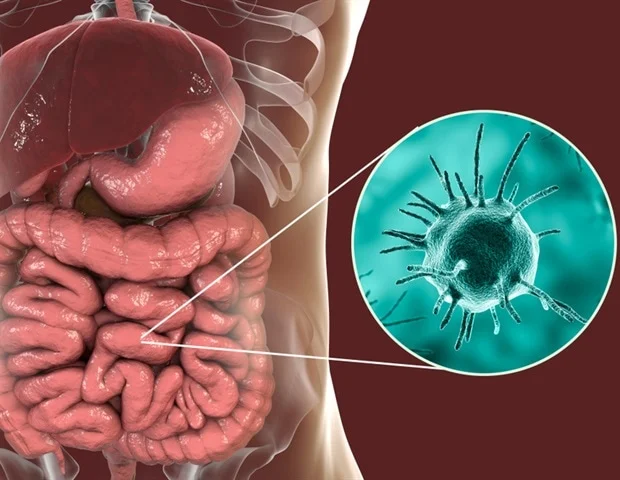There’s a quiet revolution happening in the world of mental health-and at the heart of it is something called KAP training. Short for Ketamine-Assisted Psychotherapy training, KAP training is rapidly gaining recognition as more professionals, clinicians, and healers explore psychedelic therapy as a tool for deeper, more lasting healing.
We’ve all seen how traditional talk therapy and antidepressants, while helpful for many, don’t always offer the breakthrough people need. What if healing the mind required something more immersive, more layered-something that accessed not just our thoughts, but our entire inner landscape?
That’s the promise of ketamine-assisted psychotherapy. And if you’re a therapist, guide, or mental health professional curious about this approach, KAP training could be your next big step toward supporting others in more meaningful ways.
Let’s break down what KAP training really is, why it matters, and how it can help reshape mental health care as we know it.
What Is KAP Training?
At its core, KAP training equips mental health professionals with the tools, knowledge, and clinical framework to safely and ethically guide clients through ketamine-assisted psychotherapy. Unlike recreational ketamine use or even standard ketamine infusions, KAP brings together the power of psychedelic medicine with the therapeutic relationship.
Think of it as a bridge between neuroscience and deep emotional healing.
During KAP sessions, clients receive medically supervised doses of ketamine in a controlled setting. They’re supported before, during, and after the experience by a trained therapist or guide who understands not just the medicine-but the integration process that follows.
KAP training teaches professionals how to:
Understand ketamine’s pharmacology and safety profile
Create safe, trauma-informed containers for healing
Facilitate psychedelic journeys with therapeutic presence
Guide clients through preparation and integration
Work within legal and ethical boundaries
It’s not just about giving people ketamine-it’s about knowing how to hold space when someone is navigating one of the most vulnerable, insightful, and potentially transformative states of consciousness they’ve ever experienced.
Why Is KAP Training Gaining So Much Attention?
The mental health world is in transition. Rates of anxiety, depression, PTSD, and burnout have soared in recent years-and many people aren’t finding relief with traditional approaches.
A growing body of research, including studies from Johns Hopkins, MAPS, and NYU, is now showing that psychedelics-especially ketamine-can offer significant therapeutic benefits.
Ketamine is:
Fast-acting: Many patients report mood improvements within hours
Legally accessible in the U.S. for off-label mental health treatment
Less likely to cause long-term side effects than traditional antidepressants
Effective for treatment-resistant depression, PTSD, anxiety, and more
But this isn’t a solo journey. That’s where KAP training becomes essential.
When paired with therapeutic support, ketamine can help clients access repressed memories, gain insight into destructive patterns, and reconnect with parts of themselves that have been buried by trauma or chronic stress.
And clinicians trained in KAP are uniquely positioned to walk with clients through these powerful-and often delicate-experiences.
What Does KAP Training Typically Include?
Each KAP training program has its own approach, but most share several common elements that prepare therapists for safe and effective practice.
1. Medical and Pharmacological Education
Understanding how ketamine works in the brain is key. Trainees learn about:
Dosage protocols (IM, IV, lozenge, nasal spray)
The difference between sub-psychedelic and psychedelic dosing
Potential side effects and safety considerations
Screening clients for physical or psychiatric contraindications
2. Psychological Frameworks
This isn’t just about the substance-it’s about the mind. Trainees explore:
How ketamine affects ego states and emotional processing
The role of the default mode network (DMN) in mental health
Trauma-informed care in altered states
Somatic and transpersonal psychology models
3. Set, Setting, and Ceremony
Ketamine isn’t a magic pill-it’s a portal. The environment in which it’s delivered matters deeply. KAP training covers:
Creating calming, intentional spaces for journeys
Choosing appropriate music and sensory inputs
Managing anxiety or disorientation during a session
4. Integration Support
Integration is where the real magic happens. After the medicine wears off, clients often experience emotional vulnerability, creative clarity, or disorientation. Training includes:
How to facilitate post-session meaning-making
Journaling, art, movement, and talk therapy techniques
Encouraging long-term change rooted in insight
Many programs also include experiential components, where trainees sit in sessions themselves to gain firsthand understanding of the process. This, for many therapists, is a profound and humbling part of their own personal growth.
Real-Life Stories from the Field
Dr. Elena Morales, a licensed psychotherapist in New Mexico, completed her KAP training in 2023. At first, she was skeptical-concerned about whether psychedelics belonged in her trauma-informed practice.
“But after my first experiential session,” she says, “I realized how much potential there was for clients to go beyond their ‘story’-to actually feel and shift things they’d been carrying for decades.”
One of her clients, who had been battling complex PTSD, described their third session as “the first time I felt like I wasn’t broken. Just a person-finally able to breathe again.”
These stories are becoming more common as trained practitioners bring this powerful modality to more communities.
Is KAP Training Right for You?
If you’re a licensed therapist, counselor, nurse practitioner, or mental health guide who feels called to deeper work—KAP training might be a natural next step.
It’s ideal for:
Clinicians working with treatment-resistant or complex cases
Therapists seeking to integrate psychedelic tools into their practice
Coaches or guides already involved in somatic or consciousness-based work
Professionals seeking personal and professional transformation
That said, it’s not for everyone. KAP demands emotional maturity, deep presence, and the ability to hold uncertainty with grace. The work can be messy, nonlinear, and emotionally intense. But it can also be some of the most rewarding work you’ll ever do.
Final Thoughts
Mental health care is evolving, and it’s asking us to evolve with it. People are looking for more than symptom management-they’re looking for healing. For meaning. For reconnection with themselves and others.
KAP training offers professionals a path to support that kind of healing with greater depth, compassion, and skill.
Whether you’re just starting to explore this field or ready to step fully into psychedelic-assisted work, KAP can help you become the kind of practitioner today’s world so desperately needs.
As we look toward the future of therapy-more embodied, more holistic, more heart-centered-KAP isn’t just a trend. It’s a doorway.
And it might just be yours to walk through.
Click – shakehand.site















Leave a comment